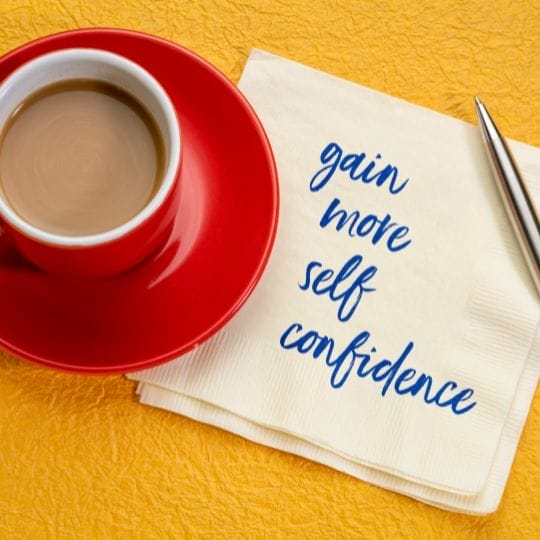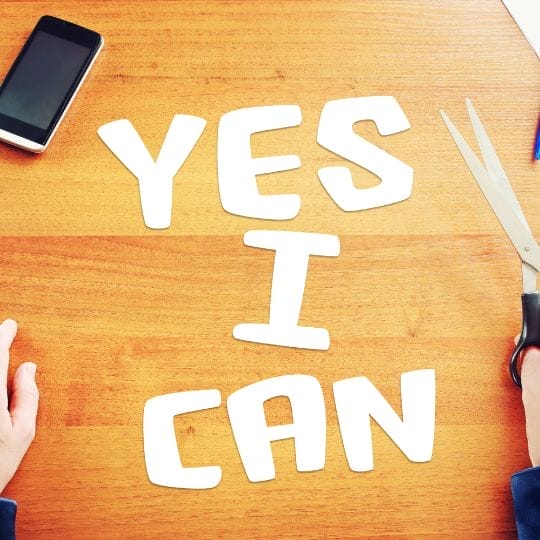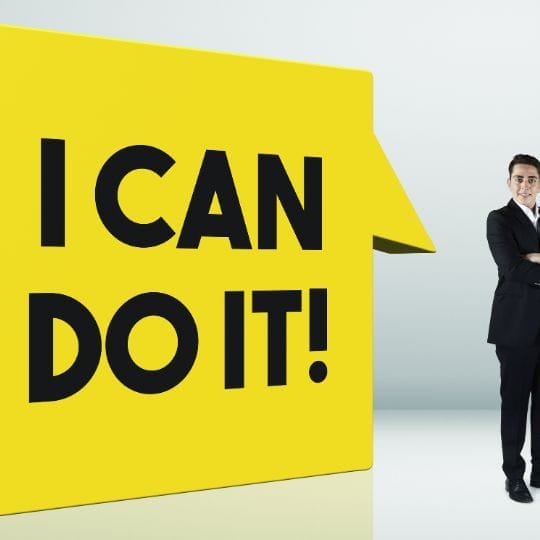
A lot of people struggle with impostor syndrome – that they don’t know enough, that they aren’t far enough ahead of their niche clients, or that they aren’t a good enough role model – not perfect enough. If you want to be successful in business, impostor syndrome needs to be addressed. In this episode, we cover how to gain self-confidence – in the most effective ways.
Let’s be clear: self-confidence can absolutely be built without any accompanying impostor syndrome. But when learning new things or stepping into bigger roles, impostor syndrome is unfortunately common.
Working with coaching students and graduates, and even other professionals, I find so many of them have imposter syndrome.
How do you deal with that? It’s easy to tell yourself that you’ve “just got to stop comparing yourself to others” or that you “need to do another training course” or something like that.
Have you tried that? How did that go for you?
I’ve been on that merry-go-round myself, many years ago, and I can say for certain that it doesn’t work. I think it’s because those sorts of thoughts sound more like a punishment than something that’s helpful.
That’s why I wanted to talk about the self-confidence mindset and tips for becoming self-confident – so that you can become more self-confident at work, at play and in relationships.
It’s tempting to think that we can simply just use discipline to make ourselves do things that are hard or that are necessary, even if we don’t feel capable in that moment.
But how do you speak to yourself in that moment when you feel like an impostor?
Do you put on a stern voice, and tell yourself to “put the big girl pants on and just get on with it?” Or to “stop playing small and just put yourself out there?”
These might look like motivational statements or affirmations on the outside, but there’s also judgement in them. And the more you say them, the more you entrench yourself in what I call a ‘judgement loop’.

In my experience, these statements are rarely said with a tone of compassion or empathy.
Think about a friend who felt like an impostor. Would you use that same voice and say the same things to them?
Probably not.
And even if you manage to put the impostor aside and take action, chances are that you’re still speaking judgementally to yourself.
You might think things like: “Well that didn’t work”, or “Everyone there was better than me”, or “I’ll never do that again.” You might even feel like such a fraud that you’re feeling guilty about lying to the audience or letting people down.
And there are other contexts that we speak to ourselves in these ways too, like when you started your business, or your skills at marketing, or that you might fail.
What does that tell you? Well, it says that your thoughts are the problem, and therefore that it’s a systemic issue that needs to be resolved.
My opinion is that discipline can be helpful if it’s used wisely, but it is not necessarily helpful in beating impostor syndrome and building self-confidence.
The interesting thing is that even if some of those statements are true, it’s not helpful for you to think that way, and, you have a choice as to whether you think that way about yourself or not.
This talks about how to gain self-confidence, and the answer starts with how you talk to yourself.
I want to help you to see that you have a choice in the way you speak to yourself and that this could have a huge impact on how confident you feel and therefore whether you can take action or not, and therefore how successful you are.
Imagine what would happen if you swapped your “I’m no good, I can’t do this” thoughts for something more compassionate and supportive, like “Come on give it your best shot”, or “Come on take action keep going!”

Firstly, how would you feel if you spoke to yourself that way instead?
How would that feeling affect your motivation to take action?
How would that affect your sense of self-worth?
How would that affect your determination and persistence?
Turning this into a habit is the work you’re looking at. Thought watching, catching the beat myself up language and replacing it with more helpful, compassionate thoughts.
Journalling can be an immensely supportive part of this process because it gives you a tangible way to document, see and alter the thoughts you have each day.
Going back to the earlier concept I mentioned, considering how you might speak to a friend who felt like this is another way to think about beating impostor syndrome and gaining confidence.
Imagine if you were your own best friend, and you admired yourself unreservedly and had your back at every opportunity?
Your ability to build confidence might become way easier and faster.
I was listening to a Dan Sullivan podcast recently and he described this experience he had years ago. He was asked how he managed to put the impostor syndrome aside and build a thriving coaching business 30 years ago.

His answer was that he started treating himself like a friend and developed that relationship with himself and everything changed.
Now 30 years on, he is one of the most successful, richest and best-known men in the business world.
What if you were more compassionate, gave yourself permission, supported yourself when you failed and encouraged yourself when you tried?
Give it a go.
And then – follow up with my next tip.
Most of the people I know who lack self-confidence do exactly ZERO celebrating their own wins.
This is the simplest and most painless way I know to build self-confidence.
Celebrate 2-3 wins you’ve had, every day.
In coaching sessions with my clients, if they are hard on themselves or beating themselves up for lack of progress, I reflect on how far they have come in the past 3, 6 months etc. Even though they are aware of what they’ve done, celebrating the win provides an eye-opening response and they become more self-accepting, aware of their progress and validated.
If you try and fail at something, there are lessons to be learned.
Although it feels ‘hard’ and uncomfortable to fail, instead of beating yourself up or crawling back under your rock – you can identify which skills you need to learn, then make a plan to learn!
I’m not talking about hiding behind 100 courses instead of actually doing what you want to do. I’m talking about getting help to learn how to do things or do a short course for a specific skill.
For example, let’s say you are great at attracting leads to your business, but people drop off at the sales call. A few things could be going wrong here.
Maybe it’s the way the conversation goes. Maybe the value proposition isn’t clear enough. Maybe your leads aren’t ready to change or buy. Maybe the options sound too hard or overwhelming.
Finding out why they’ve said no, and getting some help to have better conversations, are two skills you can develop to help you nail it in future.
What do you need help with right now?
Finally, most people don’t talk to themselves nicely, celebrate wins, or work on developing skills. They sit back and judge themselves instead because it is a comfortable and familiar pattern.
Seeking support to uncover what you’re doing and why, and then to develop these habits I’ve mentioned, is a key element to your success.
That’s what coaching is all about! So the short of it is – working with your own coach can help you become better at self-confidence much faster and outgrow the unhelpful patterns you’ve had before. How important is it for you to invest in yourself right now?
Today we talked about how to gain self-confidence. And while you can build confidence without feeling a sense of impostor syndrome, it’s rare that it happens that way.
We talked about why forcing yourself to do something (discipline) can lead to unhelpful, judgemental thoughts that keep you in a judgement loop.
I offered four ways for you to build confidence without feeling like an impostor:
If you would like to work with a coach around your self-confidence, get in touch via my contact page and I can support you or refer you to someone who works in this space.
Understanding who you are and what you need will allow your business to thrive! If you’re truly ready to break old habits and get out of the rut I encourage you to check out the Habitology membership.
Learn more here:
© 2024 Melanie White